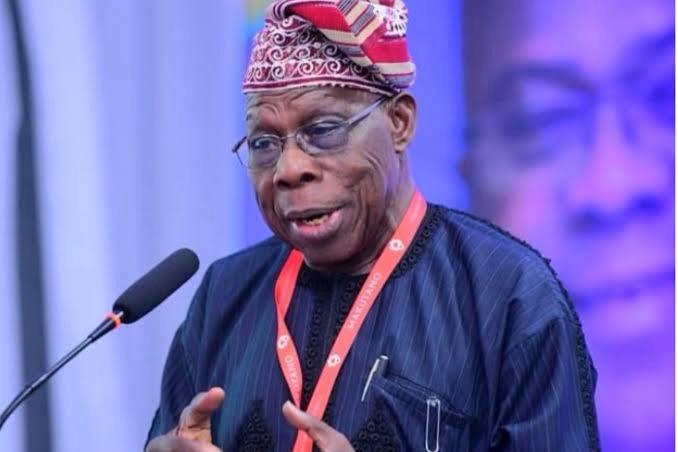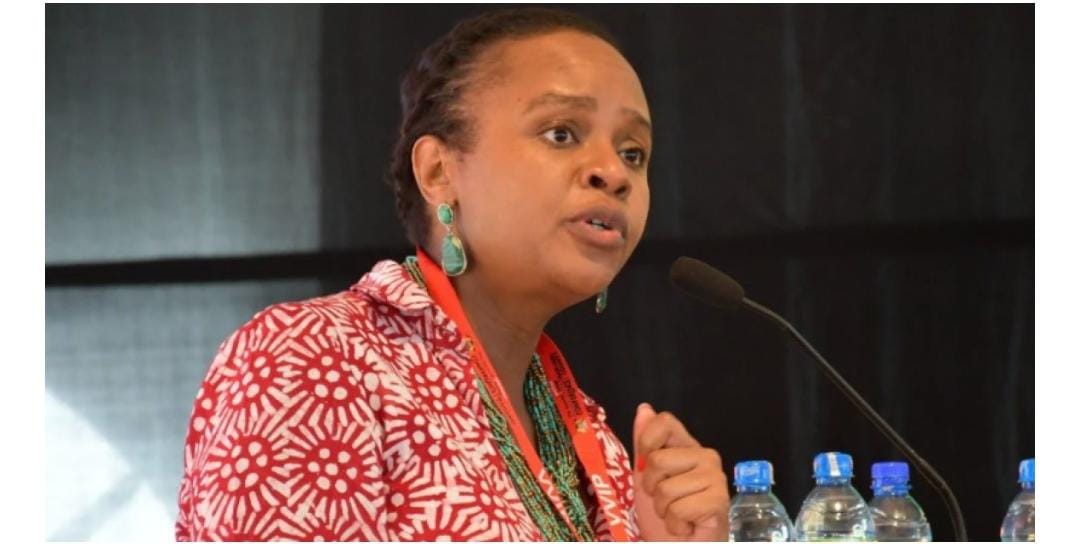
BY
OGBU, BLESSING EKPERE ESQ.
The erudite and outspoken judicial and human rights activist, professor, and erstwhile chairman of the National Human Rights Commission, Professor Chidi Odinkalu rounded off his weekend piece portentously titled “My Lord, the Felon” with this thought-provoking and sobering paragraph:
“Over that time horizon, [the] judicial process in the public perception became somewhat tarnished to a mere transaction in which outcomes are more likely than not to be determined by a quid pro quo between litigants and the presiding officers, and not by the strength of the evidence or a fair and dispassionate application of the norms. At the special session of the Supreme Court to usher in the new legal year organised on 27 November 2023, Ebun Sofunde, SAN, who addressed the court on behalf of the Body of Senior Advocates of Nigeria (BOSAN), captured this well when he warned that judicial reputation “is at an all-time low… to a point where it may no longer be redeemable.” This sums up the state of Nigeria’s judiciary 25 years into elective government.”
A brief historical context is relevant. The Kano State Government under the administration of former Governor Umar Ganduje enacted the Kano State Emirates Council Law 2019. By section 3(1) of the Law, new emirates, to wit, Kano, Bichi, Rano, Gaya and Karaye, were created and the paramount emir of the monolith Kano Emirate at that time, His Highness, Muhammad Sanusi II dethroned and banished to Awe, a rustic town in Nasarawa State. In 2024, circa the 21st day of May, 2024, the Majority Leader of the Kano State House of Assembly, Lawan Hussaini Yan Gurasa, moved a motion for the recall of the Kano State Emirates Council Law, 2019 – which had been amended twice, first in 2020 and again in 2023 – for amendment. The motion was adopted unanimously. On Thursday, the 23rd of May, 2024, the Kano State Emirates Council (Repeal) Bill, 2024 was passed into law and assented to by Governor Abba Yusuf. The new law effectively reversed the balkanization of the monolith Kano emirate and restored it to the status quo ante the 2019 amendment. Dissatisfied with the amendment, Alhaji Aminu Babba Dan Agundi, the Sarkin Dawaki Babba sued the Kano State Government, Kano State House of Assembly, the Speaker, Kano State House of Assembly, Commissioner of Police, Kano State, Inspector-General of Police, Nigeria Security and Civil Defence Corps and the Department of State Security at the Federal High Court challenging the new law. He also sought injunctive reliefs in the interim. The Federal High Court coram Mohammed Liman, J. assumed jurisdiction and granted the interim injunctive reliefs sought in the Motion Ex Parte. The orders of the Judge are threatening to throw the volatile state into avoidable conflagration.
With the need for factual background having been satisfied, it has to be stated that the conduct of His Lordship raises several disturbing specters. The first and the most obvious is that the Federal High Court does not have the jurisdiction to hear and determine disputes arising from chieftaincy matters. Second, and equally obvious is that courts do not have the competency to query, question, limit, circumvent or otherwise purport to restrict the legislative functions and duties or how the legislature performs its duties. Third, rights arising from chieftaincy tussles are not rights recognisable and enforceable under Chapter IV of the Constitution of the Federal Republic of Nigeria, 1999 as amended. Fourth, and of no less significance, is the allegation that the Judge made the orders from far away United States of America. These issues will be taken in turns.
The Federal High Court is a specialised court which came into existence by virtue of the Federal Revenue Act 1973 (1973 No. 13). It was known as the Federal Revenue Court and its jurisdiction borders on matters arising from the revenue of the Government of the Federation. It was redesignated the Federal High Court by virtue of sections 228(1) and 230(2) of the Constitution of the Federal Republic of Nigeria, 1979. This nomenclature was retained in the stillborn Constitution of the Federal Republic of Nigeria, 1989 and has been retained in the Constitution of the Federal Republic of Nigeria, 1999. The jurisdiction of the Federal High Court, as evinced in the establishment Act as well as section 251, relates principally to the items on the exclusive legislative list. This list is found in Part I of the Second Schedule to the Constitution of the Federal Republic of Nigeria, 1999. Chieftaincy matters are neither an item in Part I of the Second Schedule nor a stipulation in section 251 of the Constitution.
By way of otiose adumbration, it has to be stated that Part II of the Second Schedule deals with items on which both the National Assembly and the Houses of Assembly of the States may make laws. This is called the concurrent legislative list. Chieftaincy, instructively, is not on this list. Though the Constitution does not provide a list of items over which the Houses of Assembly of the States enjoy exclusive domain, by rule of practice and convention, however, it has been settled that items that are not expressly mentioned in the Second Schedule are designed to be within the exclusive legislative competency of the Houses of Assembly of the States. This has come to be known as the residual legislative list.
While the jurisdiction of the Federal High Court is circumscribed by section 251 of the Constitution, the jurisdiction of the High Court of the Federal Capital Territory, Abuja and the High Court of the State is provided for under sections 257 and 272. Described as ‘general jurisdiction’ but which is made “[S]ubject to the provisions of section 251 and any other provisions of this Constitution and in addition to such other jurisdiction as may be conferred upon it by law”, the High Court of the Federal Capital Territory, Abuja and the High Court of the State have “…jurisdiction to hear and determine any civil proceedings in which the existence or extent of a legal right, power, duty, liability, privilege, interest, obligation or claim is in issue or to hear and determine any criminal proceedings involving or relating to any penalty, forfeiture, punishment or other liability in respect of an offence committed by any person.” In other words, while the jurisdiction of the Federal High Court is narrow and confined to the specific items mentioned in section 251 of the Constitution and arising from the items listed in Parts I and II of the Second Schedule to the Constitution, the High Court of the Federal Capital Territory, Abuja and the High Court of the State enjoy general jurisdiction bar the items contained in section 251 of the Constitution.
Against this background, one begins to appreciate the audacious extent of the Federal High Court coram Liman, J.’s judicial intervention in a chieftaincy tussle. There is a plethora of judicial pronouncements on the extent of the jurisdiction of the Federal High Court. Attention shall be focused, however, on the cases where the Federal High Court intervened in chieftaincy disputes and the attitude of the appellate courts to such meddlesomeness. In Tukur v. Government of Gongola State (1989) 4 NWLR (Part 117) 517, the full panel of the Supreme Court held that the Federal High Court lacked the powers to dabble into chieftaincy matters as such matters were outside the jurisdiction conferred on it by both the Constitution and the establishment statute. Recently, too, the Supreme Court had reason to pronounce on this subject. In the case of Mafimisebi & Others v. Governor of Ondo State & Others (2012) LPELR-8477 (CA) at 35-36, paras D-A, the Court of Appeal per Adumein, JCA (as he then was, now, JSC), the Court bemoaned the practice of challenging chieftaincy disputes in the Federal High Court in these words: “I really wonder what on earth will make a claimant file a suit in respect of claim to a chieftaincy stool in the Federal High Court. I do not expect a prudent plaintiff to file a suit as the one in this case in the Federal High Court, even if that court is located or situated the door next to the claimant’s [house] or that of the chambers of his learned Counsel. Going by the items listed as falling within the jurisdiction of the Federal High Court, by section 251 of the Constitution of the Federal Republic of Nigeria 1999, chieftaincy disputes are clearly out of its jurisdiction. The appellants would have saved themselves, the respondents, the court below and even this court the pains of battling and settling such a trivial matter, if ab initio the suit were filed in the High Court of Ondo State which has undoubted and unlimited jurisdiction over chieftaincy disputes.”
It is of no consequence that the Claimant in that suit ostensibly joined the Inspector-General of Police, the Department of State Security and the Nigerian Security and Civil Defence Corps as Defendants to the suit. That these bodies are federal government entities does not ipso facto vest the Federal High Court with jurisdiction. Though section 251 (1)(p), (q) and (r) of the Constitution provides that the jurisdiction of the Federal High Court shall extend to “(p) the administration or the management and control of the Federal Government or any of its agencies; (q) subject to the provisions of this Constitution, the operation and interpretation of this Constitution in so far as it affects the Federal Government or any of its agencies; (r) any action or proceeding for a declaration or injunction affecting the validity of any executive or administrative action or decision by the Federal Government or any of its agencies…”, chieftaincy matters cannot, by the widest stretch of the meaning of the term, be described as an “executive or administrative action or decision by the Federal Government or any of its agencies”.
In S.P.D.C. (Nig.) Ltd v. Sirpi-Alusteel Construction Ltd (2008) 1 NWLR (Pt. 1067) 128 CA at 150, paras B-D, the Court held that “The Federal High Court does not have exclusive jurisdiction in all matters involving the Federal Government or any of its agencies. Thus, the fact that a party is a Federal Government agency does not place it under exclusive jurisdiction of the Federal High Court.” In Olayemi v. F.H.A. (2023) 3 NWLR (Pt. 1872) 445 SC at 480-481, paras G-A, the Supreme Court noted that “By virtue of section 251 of the 1999 Constitution as amended, the Federal High Court has jurisdiction to determine cases where the agency of the Federal Government is made a party to the suit. However, the principal claims must be against such an agency of the Federal Government, before the Federal High Court can assume jurisdiction…”
It is for the same reason that the attempt to couch the dispute as one flowing from the violation of the fundamental rights of the Claimant cannot stand. The violation of the rights enshrined in Chapter IV of the Constitution cannot stand alone in the absence of the validity of the Kano State Emirate Councils (Repeal) Law 2024 as this law is the core gravamen of the Claimant’s suit. The Federal High Court lacks the jurisdiction to hear and determine fundamental rights violations where the infringement of the said rights is not the principal claim. See Tukur v. Governor of Gongola State (1989) supra, Olaniyi v Aroyehun & Others (1991) LPELR-2566(SC) at 41, paras B-D, Achinehu v. Maxwell (2021) LPELR-54610(CA) at 13, paras C-E and Governor of Kogi State & Others v. Yakubu & Another (2001) LPELR-3177(SC) at 11, paras C-F where the Court emphatically held that the right to a chieftaincy stool or chieftaincy title was not a right recognizable and enforceable under Chapter IV of the Constitution.
Heads or tails, the Federal High Court acted in excess of its authority. The order of His Lordship – which has gone viral already by the way – is against settled principles and admonition from the appellate courts that Courts should not hunger after jurisdiction. See Ezenwaji v. U.N.N (2017) 18 NWLR (Pt. 1598) 485 S.C. at 511, paras. A-B, 513-514, paras. H-F, where the apex court held that “Parties on their own, or a court on its accord, cannot confer jurisdiction. Jurisdiction is conferred specifically by the Constitution… Although courts have great powers, their powers are not unlimited. Their jurisdiction is confined, limited and circumscribed by the statute creating them. The court is not hungry after jurisdiction. Judges must expound the jurisdiction of the court and not expand it as by so doing the court will be usurping the functions of the Legislature. A court cannot give itself jurisdiction by misconstruing a statute…”
While the focus remains on whether the Federal High Court has the powers to hear and determine chieftaincy matters, it is instructive to note that the removal of the holders of the offices under the law followed the amendment of the Kano State law. In other words, the Government of Kano State did not remove the former emirs arbitrarily; their deposition followed the enactment of the Kano State Emirate Council Law (Repeal) Law, 2024. The legislative process leading to this law is not subject to judicial review. It is the law itself that may be challenged. In National Assembly v. Accord & 2 Others (2021) 18 NWLR (Pt. 1808) at 263-264 paras. H-C; 263, paras. E-G, the Court held that the court lacks the power to impugn the legislative process. Though in the exercise of its inherent powers under section 6(6)(a) of the Constitution a court has the competency to declare a law as unconstitutional pursuant to the provisions of section 1(3) of the Constitution, it cannot declare as unlawful the legislative process, or purport to use its judicial powers to stricture the course of legislative proceedings. Purporting to act at variance to this principle is equivalent to the court acting ultra vires its powers.
It remains to be added that a Court established under the Constitution can sit only within its designated territorial confines. Though Order 46 Rule 1 of the Federal High Court (Civil Procedure) Rules, 2019 stipulates that “A Court may at its discretion, appoint any day and any place from time to time for the hearing of action as circumstances require”, this provision must not be read with uninhibited elasticity to mean that a Judge is justified to exercise his judicial powers at large without regard to the concept of territorial jurisdiction of the court. Section 19(1) of the Federal High Court Act provides that “[T]he Court shall have and exercise jurisdiction throughout the Federation and for that purpose, the whole area of the Federation shall be divided by the Chief Judge into such number of Judicial Divisions or parts thereof by such name as he may think fit.” This position has been given judicial fortification in a number of cases such as Kanu v. Federal Republic of Nigeria (2022) LPELR-58768(CA) at 112-114, paras C-E per Sankey, JCA (as he then was, now JSC), Uba v. Moghalu & Others (2022) LPELR-56992(CA) at 45-47, paras F-C per Senchi, JCA, and SPDC v. Saakpa & Another (2023) LPELR-61203(CA) at 39-41, paras F-C. “Any place” as used in Order 46 Rule 1 of the Federal High Court (Civil Procedure) Rules, 2019 does not therefore include the United States of America from whence His Lordship is alleged to have made the interim orders!
The interim orders of His Lordship the Honourable Justice Mohammed Liman are unjustifiable and indefensible in all respects. At a time when public perception of the judiciary is askance, these orders tend to push the judiciary further into the mire of opprobrium. At the risk of being immodest, it is both a trivialization and a politicization of the judicial process for a Judge of the Federal High Court to assume jurisdiction to make interim orders in a politically charged chieftaincy matter when on the face of the processes before him he knows or ought reasonably to know that he is bereft of jurisdiction. Considering the importance of the role of the judiciary in the sustenance of a peaceful society anchored on constitutional and democratic ideals of due process and the rule of law, Judges should not lend their high judicial office to perpetuate partisan designs. This is not only self-nihilistic of the independence, hallowedness and sanctity of the third arm of government which stands as a bulwark between the citizens and the other arms of government where those other arms of government threaten the rights and civil liberties of the citizens, it portends grave danger for the sustained corporate existence of the country. The tension that His Lordship’s interim orders have triggered in the ancient city of Kano in particular and the entire State, in general, is a warning of the ominous danger a dubiously contrived and procured judicial decision portends. In other words, there is a world of difference between judicial intervention and judicial interference; while the former is welcome when it is exercised legally and within the lawfully prescribed limits, the latter is the herald of anarchy.
Ogbu, Blessing Ekpere Esq., a legal practitioner, writing from Abuja . ContContact: sir_ideology@yahoo.com.

categories
recent posts

NIGERIA: Spyro Accuses Wealthy Individuals Of Avoiding Payment For Services

NIGERIA: NDLEA Destroys 1.6 Million Kilograms Of Illicit Drugs, Largest In Agency’s History

NIGERIA: Obasanjo Says Leadership, Not Lack Of Resources, Is Nigeria’s Real Problem

Kenya Appoints Dr. Mercy Mwangangi As Head Of Social Health Authority

